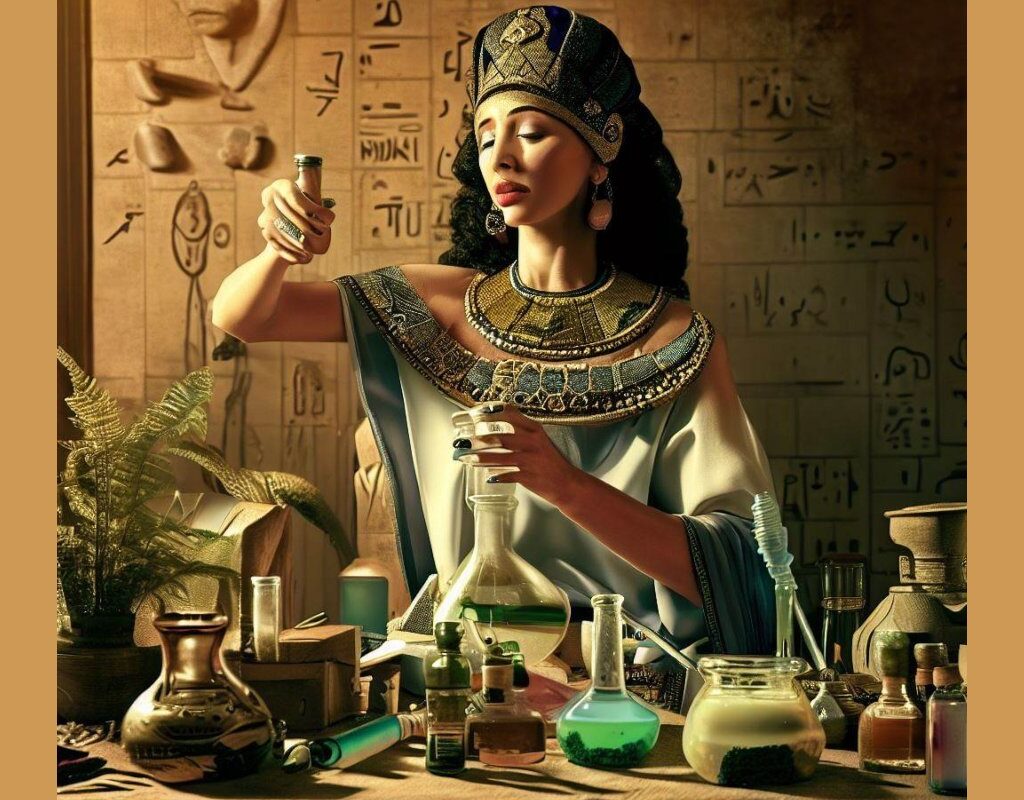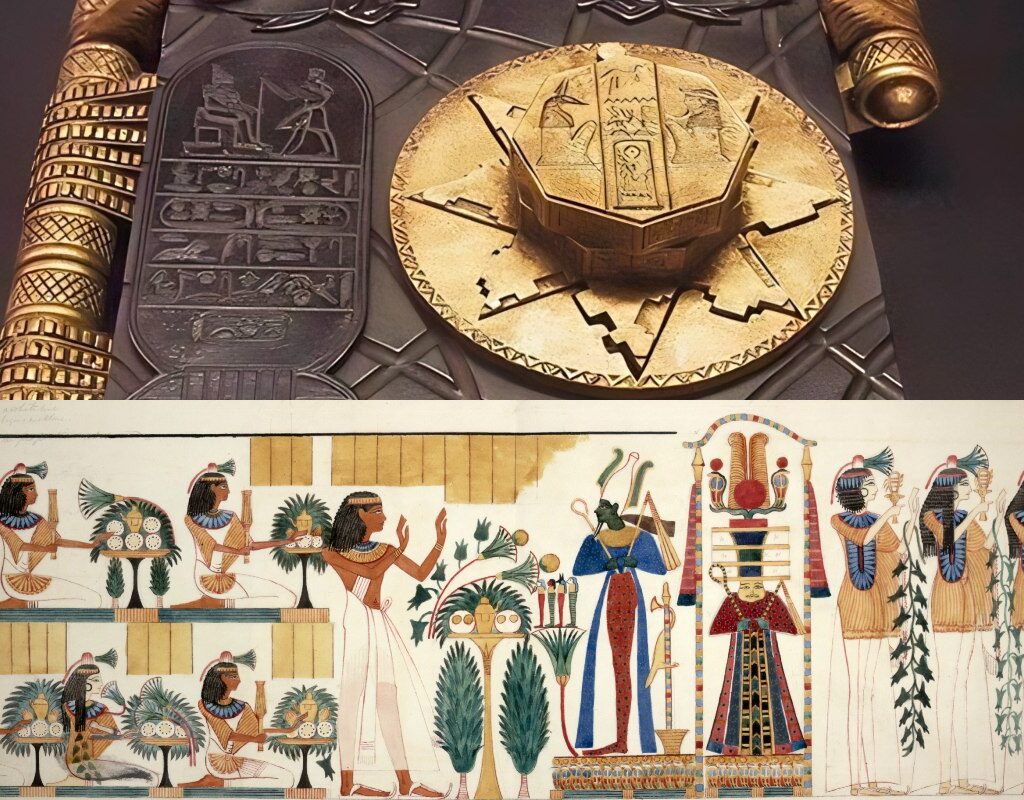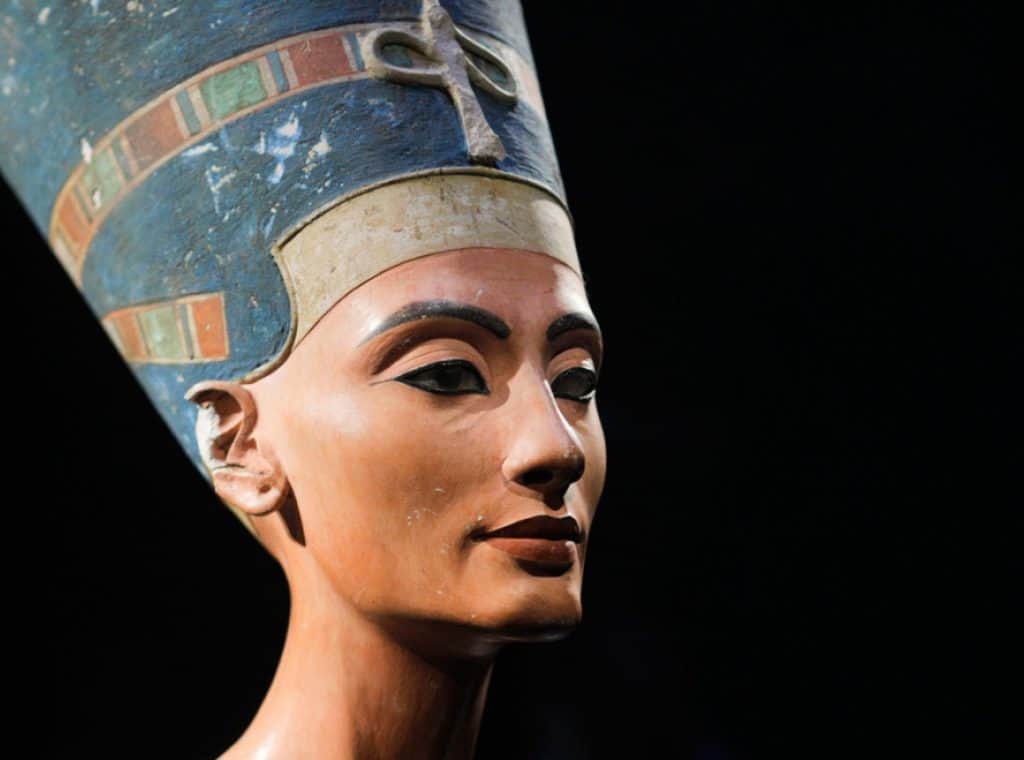The story of Cleopatra, the famous queen of Egypt is full of mystery and fascination. Although she is widely known for her relationship with Roman leaders Julius Caesar and Mark Antony, few are aware of her vast knowledge and passion for learning.
Cleopatra: The Queen of Knowledge and Medicine in Ancient Egypt
Cleopatra ascended the Egyptian throne at the young age of 17 and became a shrewd and powerful ruler. However, their influence transcended the limits of politics and encompassed a wide range of academic disciplines.
This extraordinary polyglot woman was fluent in nine languages, including ancient Egyptian which allowed her to read and understand complex hieroglyphics, something unusual in her dynasty. His command of Greek and other languages such as those of the Parthians, Hebrews, Medes, Troglodytes, Syrians, Ethiopians and Arabs, gave him access to vast knowledge stored in libraries and ancient texts.
She was an avid reader and it is said that any book in the world was open to her. He studied disciplines that ranged from geography and history to astronomy and international diplomacy. He delved into fields as diverse as mathematics, alchemy, medicine, zoology and economics.
Cleopatra wanted to embrace all the knowledge of her time and become an authority in multiple areas.
Discovering Cleopatra’s Scientific Side: Wisdom and Medicine in History
The Egyptian queen spent much of her time in a specialized laboratory where she conducted experiments and wrote about herbs and cosmetics. Unfortunately, the destruction of the great Library of Alexandria in 391 AD resulted in the loss of all its books.
However, his legacy lasted through the writings of the famous Greek doctor Galen who studied and transcribed some of the recipes and remedies devised by Cleopatra.
One of the remedies that Cleopatra had developed and that Galen also recommended to her patients was a special cream to combat baldness in men. Although Cleopatra’s original books have disappeared, this knowledge has transcended the centuries thanks to Galen’s dedication and his interest in the work of the Egyptian queen.
Apart from his contributions to the field of medicine, he was also interested in beauty tricks and the use of herbs for healing purposes. His command of multiple languages allowed him to access numerous papyri and texts that are now lost forever.
During the first centuries of Christianity, its influence on science and medicine was widely recognized.
Cleopatra was a truly unique figure in human history. Her passion for knowledge and her dedication to the search for wisdom made her one of the most outstanding scholars of her time. Her legacy extends beyond her role as queen and political leader, leaving a lasting mark on the fields of medicine and science.
Cleopatra’s Incredible Erudition: Medicine and Knowledge in Ancient Egypt
Cleopatra’s influence on the development of medicine and healing through herbs is undeniable. His multilingual studies and knowledge gave him access to a wide range of ancient papyri and medical texts that, sadly, have been lost over time.
His work was recognized by Galen and other prominent doctors of the time who studied and shared his prescriptions and remedies.
In addition to her medical knowledge, Cleopatra was also concerned with beauty and the secrets of personal care. His books contained valuable tips and tricks on cosmetics and beauty routines, although unfortunately none of them have survived to this day.
Cleopatra’s life is shrouded in legends and myths and her tragic death marked the end of an era in Egypt.
However, her legacy as an exceptional intellectual and a voracious scholar endures. Her insatiable thirst for knowledge and her dedication to the acquisition of wisdom in diverse disciplines make her an inspiring example for future generations.
Cleopatra was much more than a seductive and powerful queen. Her exceptional erudition and tireless search for knowledge led her to master several languages and study a wide range of academic disciplines.
His influence on medicine and personal care, although largely lost to history is still recognized and valued by scholars and experts of the time. Cleopatra, without a doubt, is an iconic figure and a testament to the importance of learning and knowledge in human development.



